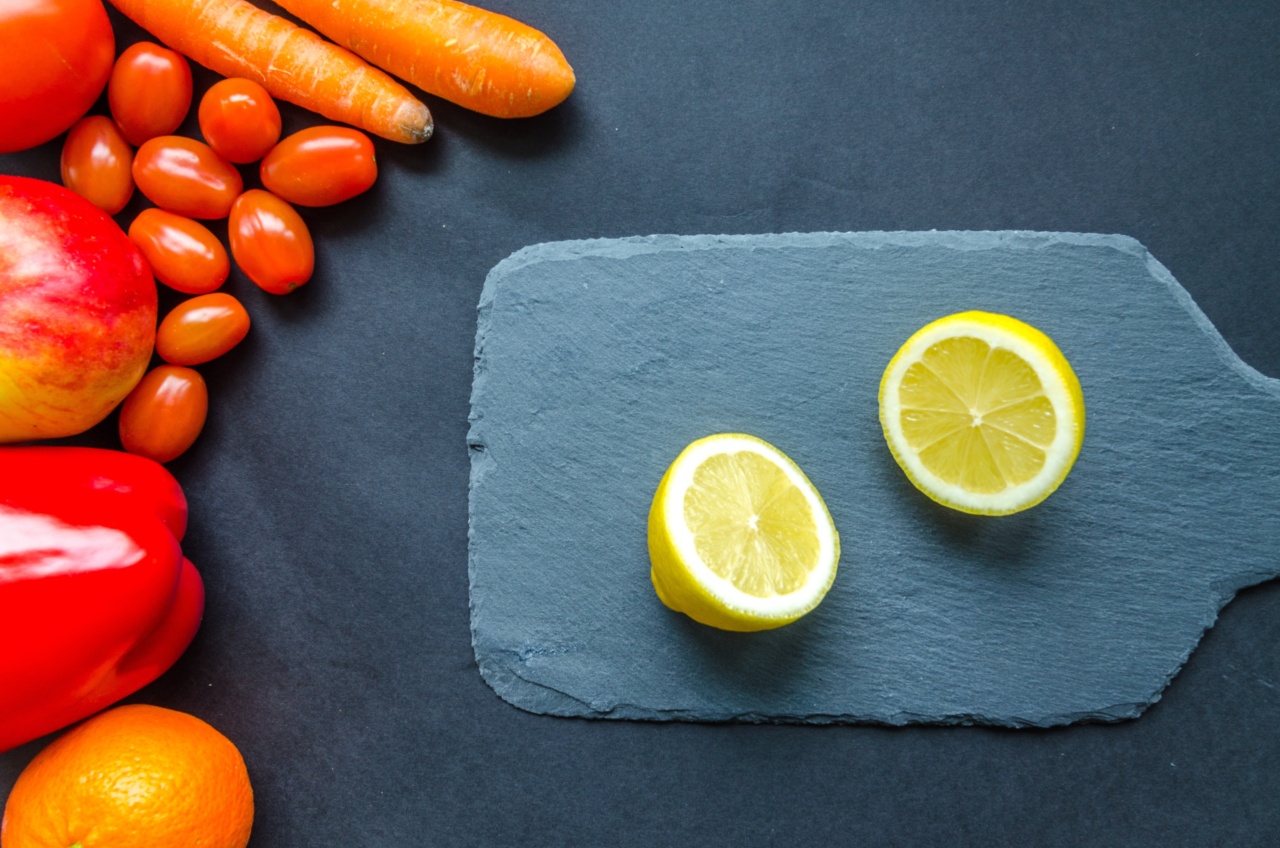Are you experiencing bloating after having a meal? Do you know that some fruits and vegetables can cause bloating? Here are the top 30 bloating-causing fruits and vegetables that you should be aware of:.
1. Apples
Apples contain fructose and high amounts of fiber, which can cause bloating and gas in some people.
2. Pears
Similar to apples, pears also contain high levels of fructose and fiber that can lead to bloating.
3. Broccoli
Although broccoli is a nutrient-dense vegetable, it contains raffinose, a carbohydrate that can cause gas and bloating in some people.
4. Cabbage
Cabbage contains high levels of fiber and can be difficult to digest for some people, causing bloating and gas.
5. Cauliflower
Similar to broccoli, cauliflower contains raffinose, which can cause bloating and gas in some individuals.
6. Brussels Sprouts
Brussels sprouts are high in fiber and contain raffinose, making them a common cause of bloating and gas.
7. Onions
Onions can be difficult to digest, causing bloating and gas for some people, especially when eaten raw or in large amounts.
8. Garlic
Garlic contains fructans, a type of carbohydrate that can cause bloating and gas for some people, especially those with irritable bowel syndrome (IBS).
9. Mangoes
Mangoes contain high amounts of fiber and fructose, making them a common cause of bloating.
10. Watermelon
Watermelon contains a high level of fructose, which can cause bloating and gas for some people who are sensitive to it.
11. Cherries
Cherries are high in fructose and can cause bloating and digestive discomfort in some individuals.
12. Grapes
Grapes contain fructose and fiber, which can lead to bloating and gas for some people.
13. Avocado
Avocado is high in fiber and fat, making it difficult for some individuals to digest and causing bloating and discomfort in some cases.
14. Peaches
Peaches contain fructose and high levels of fiber, which can cause bloating and gas for some people.
15. Plums
Plums are high in fiber and fructose, making them a common cause of bloating and digestive discomfort.
16. Apricots
Apricots are high in fiber and fructose, which can cause bloating and gas in some individuals.
17. Radish
Radish contains raffinose, a sugar that can lead to bloating and gas for some people.
18. Peas
Peas are high in fiber and contain raffinose, making them a common cause of bloating and gas for some individuals.
19. Artichokes
Artichokes contain high levels of fiber, which can cause bloating and gas for some people who find it difficult to digest them.
20. Corn
Corn is high in fiber and can be difficult to digest, leading to bloating and gas for some people.
21. Sweet potatoes
Sweet potatoes are high in fiber, making them a common cause of bloating, especially when eaten in large amounts.
22. Beets
Beets contain high levels of fiber and fructose, which can lead to bloating and gas for some individuals.
23. Carrots
Carrots are high in fiber and can be difficult to digest, causing bloating and gas for some people.
24. Tomatoes
Tomatoes contain fructose and can cause bloating and gas for some individuals, especially when eaten in large amounts.
25. Persimmons
Persimmons are high in fructose and fiber, which can cause bloating and discomfort in some individuals.
26. Papaya
Papaya is high in fiber and contains enzyme papain, which can cause bloating and gas for some people who are sensitive to it.
27. Pineapple
Pineapple contains enzyme bromelain, which can cause bloating and gas for some individuals who are sensitive to it.
28. Bananas
Although bananas are a good source of fiber, they also contain high levels of sugar, which can cause bloating and gas for some people.
29. Kiwi
Kiwi is high in fiber and can be difficult to digest, causing bloating and gas for some individuals.
30. Mangoes
Mangoes are high in fiber and fructose, making them a common cause of bloating and digestive discomfort for some individuals.
Conclusion
While fruits and vegetables are an essential part of a healthy diet, some of them can cause bloating and digestive discomfort for some individuals. It is important to listen to your body and avoid consuming foods that cause discomfort.
If you experience frequent bloating, it may be helpful to keep a food diary to identify which foods are causing your symptoms.


























